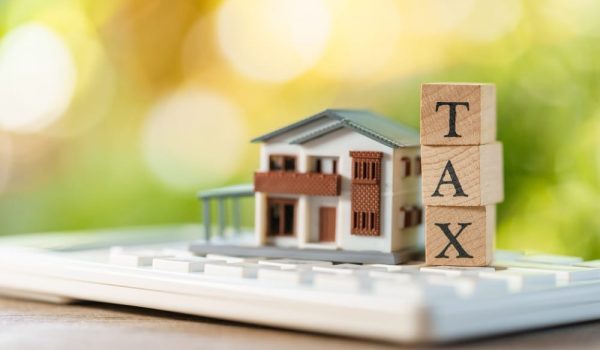Thinking of investing in property in Bulgaria? Looking to start a company in Bulgaria and need land and building to do so? Are you considering moving to Bulgaria and settle down in this European country?
Foreign individuals and businesses can invest in properties in Bulgaria, either directly or through a local registered company (company registration in Bulgaria is a rather simple process, while others prefer to look into buying a shelf company, either option may work best for an investor looking to own property in Bulgaria). It’s worth mentioning that only Bulgarian residents and European citizens can legally acquire land.
For those that are property owners in Bulgaria but do not have a residency permit, certain property taxes are mandatory.
- Read also: Bulgaria Crypto Tax and regulation
Different property taxes in Bulgaria
There are different taxes related to buying, selling, owning, and renting property that we are going to discuss in more detail.
Purchase Property Tax
Buying a property is tied to the fees of a notary and a municipal tax. Notary tax usually is usually about 1% of the higher end value of the property in question, though the rate can vary. The municipality tax is 2% of the market value of the property, though it varies from one municipality to another.
These taxes are paid after the notarized purchase of the property.
Annual Property Tax
All properties are subject to an annual tax in Bulgaria. Currently this rate is about 0.15% of the tax evaluation of the property (by the government entity in charge of this – and it can be different than the market value-).
Included in the annual property tax, property owners must pay a waste collection fee which may vary from 30 to 100 BGN depending on the area and size of the house.
Property tax on rentals
Bulgaria has a tax for the income produced from renting a property. The standard rate for tax on rental income is 10%.
Other taxes: VAT (Value Added Tax)
Buying property for residential purposes is not subject to Value Added Tax. However, buying or selling property destined to commercial activities or with the intention of trade is subject to the rate of 20% VAT tax, depending on the origin of the building, and if it is either new or old. Your accountant will be best equipped to advise you on VAT for your properties acquisitions.
Other taxes: CGT (Capital Gains Tax)
As a property owner, seeing the value of the property go up is encouraging and often expected as it is an investment. However, this is considered a capital gain and taxable in Bulgaria with a 10% rate on the increased value of the property.
This tax is payable when the owner is selling the property and it is calculated by comparing the difference between the buying price and the selling price.
Other taxes: IHT (Inheritance Tax)
There is an IHT tax in Bulgaria, and it is regulated as it follows. The state of the decedent, with some exceptions if exempt from tax, is valued at the date of the opening of the succession. It includes immovables, like property, currency, securities, vehicles, etc.
The rate of tax is determined by the relationship of the legatee: siblings and their children benefit from a lower taxation than other persons.
Property tax for corporations
As we mentioned, property cannot be owned by non-Europeans in Bulgaria. This doesn’t apply to foreign companies. Foreigners are actually encouraged to look into company formation Bulgaria in order to buy and own property.
A company advisor in Bulgaria is recommended to help deal with the bureaucratic side of registering a company in Bulgaria and the accounting requirements. The best choice is Accountancy Bulgaria, a company with years of experience, multilingual experts, and a long trustworthy reputation. Apply for a free consultation to make sure they can provide you with a business personalized plan that adjusts to your company’s needs.
Looking for Accountancy Service in Bulgaria?
Request a free consultation
Book your free 30 minutes meeting with us here to receive all the support you need
Calculating the property tax is a complex process with a variety of considerations. The assessment of the value and the correspondent tax is determined at rates specified in an annex to the Local Taxes and Fees Act and it depends on the type of the immovable property, the location, the surface area, the structure and depreciation.
Read also: Bulgaria VAT Rates and how it works in the Country
Conclusion
Property taxes in Bulgaria are on the lower side compared to other European countries. There are a lot of opportunities for foreigners looking to invest in the real estate market in this country, European citizens have the right to own property, and foreign corporations with a branch or office in Bulgaria can access this too.

